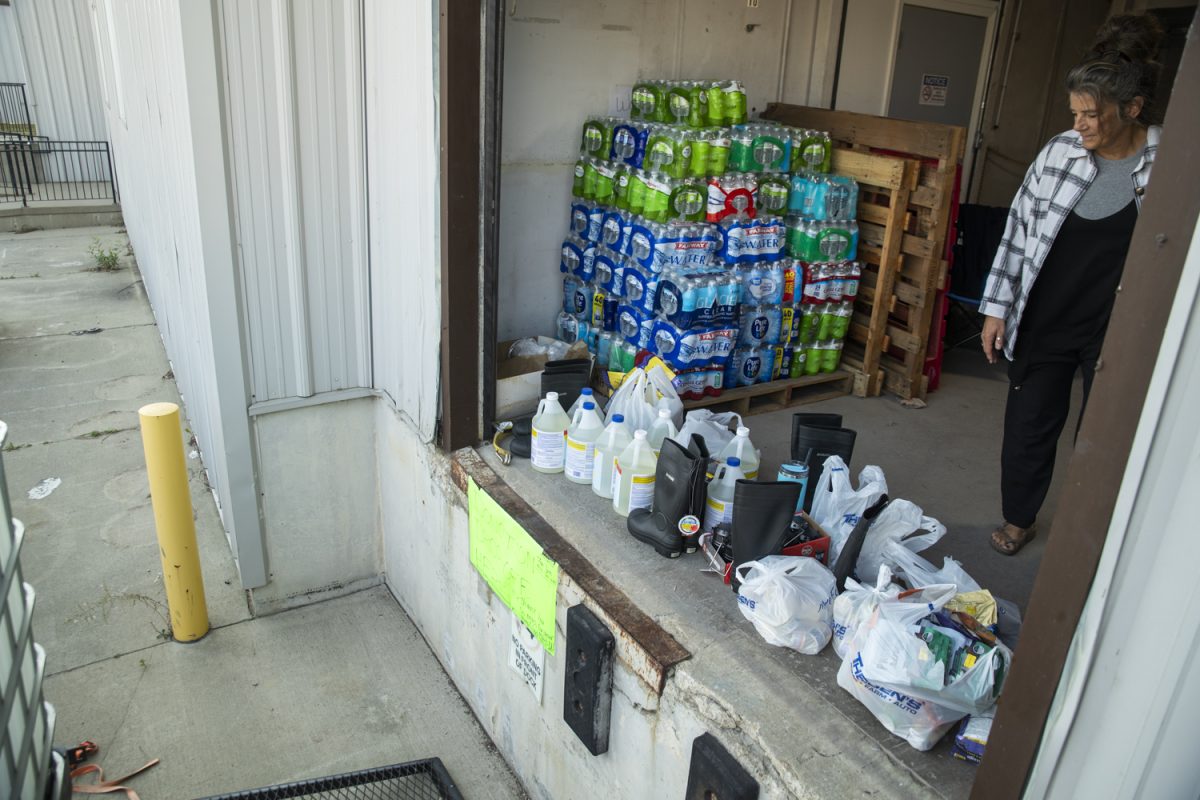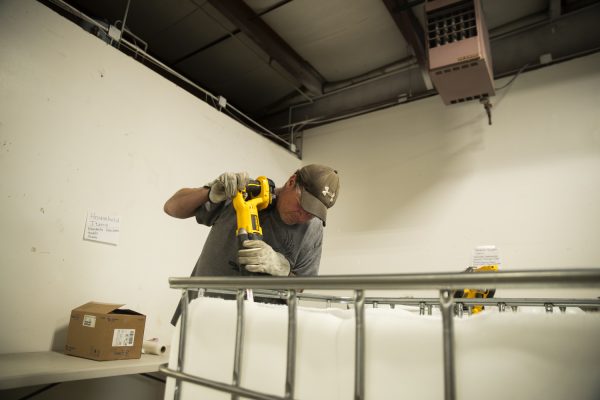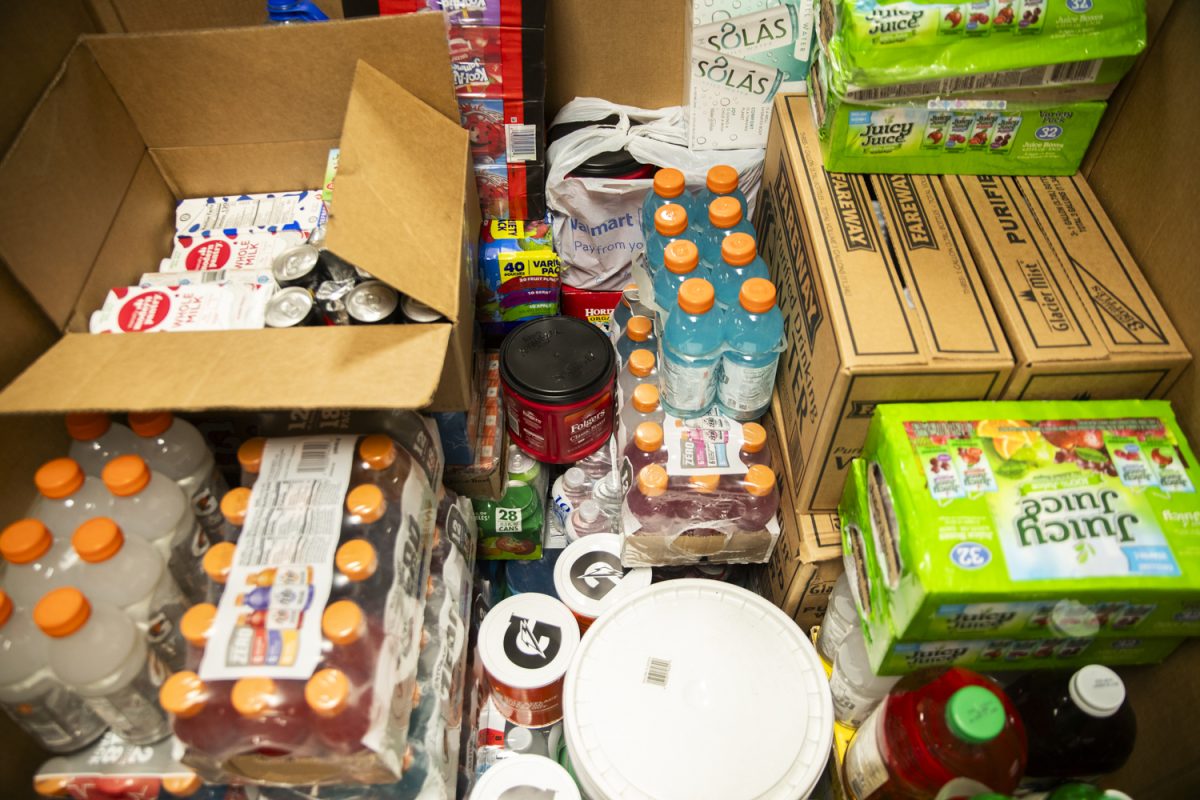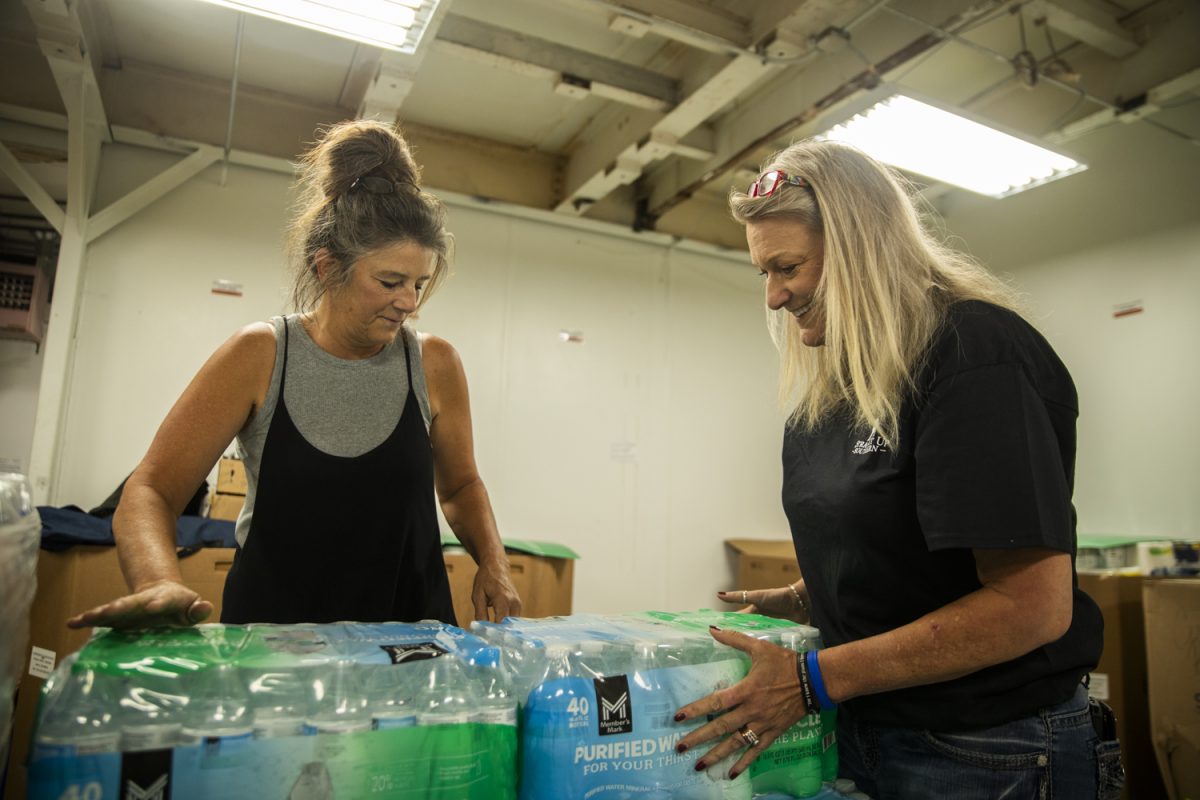For five agonizing days, Cedar Rapids father Brian Jones thought his daughter and grandson were dead, swallowed whole by the unexpected wrath of Hurricane Helene in the mountains of inland North Carolina.
“They had no clue,” Jones said. “Nobody had any indication this was going to happen at all.”
Making landfall as a Category 4 storm on the Gulf Coast on Sept. 26, Hurricane Helene unleashed historic rain and wind across western North Carolina in the days leading up to the storm’s peak.
The relentless deluge devastated inland mountain areas unaccustomed to such events, leaving towns isolated for days as flooded roads and landslides cut off access.
As the unprecedented destruction played out on national news ravaging the mountainous area of Burnsville, North Carolina, where his daughter Jeshua and 10-year-old grandson Kayden lived, Jones feared the worst as repeated calls to his daughter went unanswered.
“For her mother and I, this was very traumatic,” Jones said. “We thought we lost her.”
Then, after five days of uncertainty, the phone rang with the news Jones and his family had hardly dared to hope for — Jeshua and Kayden were safe.
Jones explained that his daughter’s home is situated on an incline, common in the mountainous terrain of Burnsville. As a nearby stream overflowed, flooding her home, Jeshua and Kayden set out on foot, trekking for five days and relying on the help of other mountain residents for food and shelter along the way.
Finally, Jones said, they were rescued by someone on an ATV who brought them to a fire station, where his daughter was at last able to contact family.
“She walked off that mountain with that boy,” Jones said, fighting tears. “That’s what I’m most proud of her about.”
Jones said his daughter’s narrow escape began earlier that day when her landlord came by to check the rising water levels around the property Jeshua rented. While the landlord was assessing the stream that ran alongside the house, a sudden 10- to 15-foot-tall surge of water rushed down the mountain, tragically sweeping her landlord away.
“What was just a little creek had already come all the way up against her house and was just swooping by,” Jones said. “The big gush came, and all of a sudden, her landlord’s dead.”
The water started rising inside his daughter’s home, and he said she knew time was of the essence if she and her son were to survive.
Many others did not. As of Oct. 15, the North Carolina Department of Health and Human Services reported 95 storm-related fatalities, with Gov. Roy Cooper announcing that 92 people are still missing in the wake of Helene.
Meanwhile, Florida residents were also reeling from the impact of Hurricane Helene — which made landfall near Panama City on Sept. 26 — when yet another storm approached the region.
Just days after Helene’s devastation, Hurricane Milton formed in the Atlantic, quickly intensifying and prompting widespread evacuation orders along Florida’s southeastern coast as meteorologists warned of its potential to cause further catastrophic damage.
Much like the inland regions of North Carolina that were unexpectedly devastated by Helene, residents of Tampa Bay — which had not been directly hit by a major hurricane in over 100 years — were about to experience the same havoc as Milton barreled toward the coast.
Megan Maddaleno, a University of Iowa graduate and director of orchestral activities and string studies at the University of Tampa, said she watched the news for eight hours the day Milton was due to make landfall.
“For most of the airtime, they were saying, ‘It’s going to shift last minute, it’s not going to hit Tampa,’” Maddaleno said. “And then, within the last hour before it hit, they said, ‘It is actually going to hit Tampa. Please brace yourselves.’”
Maddaleno described the moment as terrifying, though she didn’t fear for her own safety since she lives in a third-floor apartment. Still, she noted that even weeks after Milton’s devastation, the Tampa Bay community is struggling to recover.
According to the Florida Department of Law Enforcement, at least 24 people have died due to Hurricane Milton’s widespread destruction as of Oct. 14, as reported by the Daytona Beach News-Journal.
An Oct. 14 press release from Florida Gov. Ron DeSantis said nearly 300,000 Floridians are still without power.
Maddaleno also pointed out the critical gasoline shortage in her area, which has left many residents stranded without vehicles and unable to power home generators. The city is also facing unprecedented flooding due to the back-to-back storms.
“Boats are having to go down streets and pick people up in their homes,” Maddaleno said. “Even this far inland, which is absolutely crazy to me.”
Local efforts to aid hurricane victims

As floodwaters receded and communities began the long road to recovery, a wave of support began to flow in from an unexpected place: Iowa.
Joyce Rozek, a Cedar Rapids resident, took it upon herself to gather donations and establish a partnership with JMS Transportation — a Cedar Rapids trucking company — to haul the donated items to Calvary Lutheran Church in Morgantown, North Carolina.
Having experienced the chaotic aftermath of the Iowa flood of 2008 and derecho of 2020, Rozek said her goal is not only to collect and deliver as many essential items as possible but to ensure everything is labeled, organized, and packed with care, making distribution easier for those in need.
“It’s nice to know that you’ve got fellow Americans willing to help in a crisis,” Rozek said. “That’s what I’m trying to do for the people in North Carolina.”
RELATED: Johnson County to assess costs for tree replacements after derecho
Rozek fought back tears as she described the outpouring of support from Iowans. She said people from across the state have been driving long distances to contribute, bringing bags of essential items — often spending hundreds of dollars on food, hygiene products, and other donations.
Local companies have also pitched in, with Colony Heating offering Rozek use of its warehouse space to organize and pack items and Bank Iowa contributing $1,000.
“That kind of attitude is what Iowa is all about,” Rozek said.

In addition to Rozek’s grassroots efforts, the Red Cross has mobilized at least 30 volunteers from Iowa to assist in affected areas.
Emily Holley, regional communications manager for the American Red Cross Nebraska-Iowa Region, said the Red Cross deployed a small team of volunteers ahead of Hurricane Helene, following standard protocol.
“After we saw the extent of the damage of Helene, we began sending more people,” Holley said. “We are continuing to send people to support the disaster recovery efforts with Helene, and now Milton.”
Holley said 36 Red Cross emergency shelters across the Southeast are currently housing nearly 4,000 people, with most Iowa volunteers helping to meet shelter needs.
As relief efforts remain crucial, volunteer safety has become a concern after Federal Emergency Management Agency crews in Rutherford, North Carolina, were ordered to relocate due to reported armed threats against workers, The Washington Post reported.
“Obviously this goes back to the misinformation that has been spread around the internet,” Holley said, adding that the Red Cross is deeply concerned about the spread of such misinformation overall.
According to an Oct. 14 FEMA press release, the decision to relocate workers did not hinder ongoing search-and-rescue and life-safety operations in the area. The release states the reported threat was mitigated by law enforcement and cautioned against online misinformation that contributes to threats against response workers.
Holley said the Red Cross has not relocated any personnel at this time but is working with government officials to assess threats and ensure safety, adding that misinformation can harm response workers and people in need.
How to help
Brian Jones has established a GoFundMe campaign to raise money to replace his daughter’s vehicle lost in Hurricane Helene.
Jones said his daughter, raised in the Dubuque area, moved to North Carolina over a decade ago, driven by her love for the mountains, and has worked hard to start her own successful cleaning company.
“Her cleaning company was something that she dreamt about. She built it, and then, bam, it was just all gone,” Jones said. “Her dream in the mountains turned into a torment of pain.”
Joyce Rozek is continuing to collect donations at 715 66th Ave SW in Cedar Rapids, and encourages anyone with questions or interest in coordinating a donation to reach her at 319-450-2723.
Emily Holley added that the Red Cross is seeking more volunteers, noting that roles are flexible and can be done during summer breaks or at times convenient for college students.




